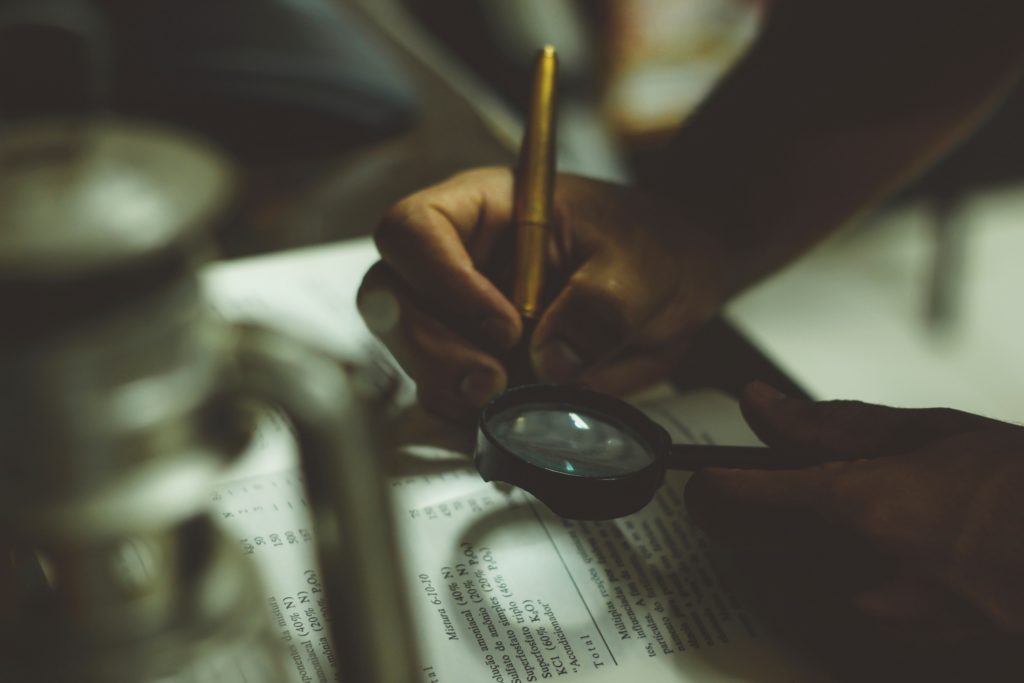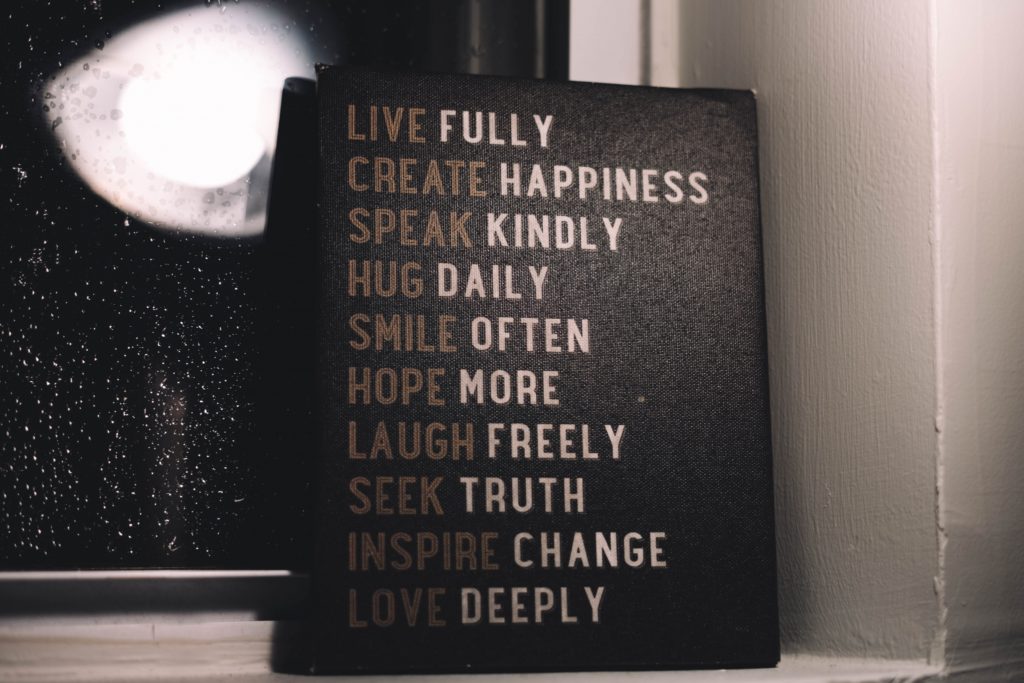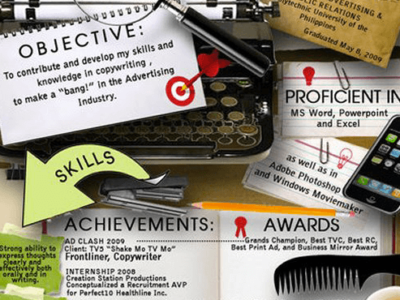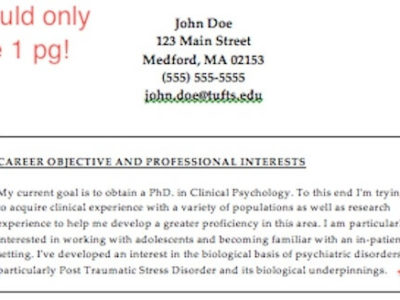Journalist: noun; a person who writes for newspapers, magazines, news websites, prepares news for broadcast.
The job title looks limited in scope, but employers for journalist positions today want so much more than a person with just exceptional writing skills. They search far and wide for multi-faceted journalism wizards, who cannot only write, but investigate, create and smack you in the face with their work. “I think the most important thing to communicate on a resume in the current journalism environment is versatility,” Daily Aztec News Editor Bella Ross said. “Fewer reporters means journalists have to take on more tasks than before, so you can’t only be good at writing.” However, don’t trip if you feel incapable.
We made a list of very special power words for you to sparkle onto your resume to appear magical in the eyes of your soon-to-be employer.
1. Conceptualized

Ideas, ideas, ideas. Every writer’s best friend. One of the top three qualities employers might look for when hiring journalists is, “showing you can write in AP style and have the ability to write on the spot,” said San Diego State University Lecturer Jayla Lee. Showcasing your ability to come up with interesting concepts would tell your employer that hiring you will be a great decision.
2. Investigated

Journalists sometimes have to dig deep in the trenches for their work. If you have experience researching a single topic in depth to acquire information that would otherwise be hidden or unknown to the public, call yourself an investigative journalist. This word and experience in a resume expresses your ability to hold on tight to a goal and gain the knowledge you need by any means necessary.
3. Collected

As a journalist, this word is most likely a part of your daily vocabulary by now. Collecting quotes, sources and information make up a large percentage of the demands these positions require. Including this word in a resume tells your employer you’ve got those fundamentals down.
4. Researched

This refers to “research” as in collecting information, not the science experiment kind of research that all writers hate. Knowing how to look and where to look for information you may not know you needed will give you a one up on many competitors for the position. Make sure to show off internship experiences that made you research boring information for hours.
5. Inspired

Merely possessing interest in journalism isn’t really enough. “The best thing you can have as a journalist is a natural sense of curiosity,” Ross said. To go far in Journalism, you need to have the drive and ambition for the work. Show them how much you care about the craft by sharing stories about all the people you have helped or inspired with your writing.
6. Communicated

Most of what you do as a journalist requires talking and asking questions, so when applying for a journalist position, employers automatically expect great communication skills. “Communication skills are the foundation of everything, no matter what field or area. However, when it comes to journalism, that is the nature of the job,” San Diego State University Career Counselor Alejandro Rodriguez said. Make sure you ‘communicate’ in your resume that you have those necessary skills.
7. Persuaded

Setting up interviews with important people prove to be difficult at times. With experience in jobs such as sales managing or fundraising, students gain persuasion skills which benefit applications in other jobs that require the same skills. In journalism, great persuasion abilities can help you convince that special source to give you the quote you need for your article’s “cherry on the top.”
8. Listened

Although you will have to do a lot of talking, the people you interview with will have things to say as well. “I think it’s important to not only be a good communicator, but a good listener as well. You can’t be afraid to talk to people or be intimidated by them because interviews and having conversations are probably 80% of the job,” San Diego State University junior Roxy Becerril said. The main point of an interview from a journalist’s standpoint solely focuses on acquiring information so great listening skills help provide a great foundation for journalism writing.
9. Reported

One of the other words on the journalism fundamentals list. “Skills related to media writing, reporting and content producing are some of the key words employers are seeking in a resume,” Becerril said. Although employers want to see many more qualities besides the ability to report, they expect applicants to already have that experience down to at.
10. Informed

People will depend on you to present important information. Knowing how to successfully introduce your thoughts and the research you’ve collected will make your work effective and improve your work as a journalist. It will also inform the public audience in a smooth manner.
11. Edited

In most journalist positions, you will usually have an editor. This does not mean you shouldn’t have impeccable grammar and writing practice. “One of the top three qualities employers might look for is great writing experience,” Lee said. Employers won’t hire someone who does not write well, and that means you must know how to edit your own work.
12. Prepared

Taking roles of importance in the world of Journalism will help you grow fast. Leadership roles where you have to prepare projects, teach others and display your knowledge helps master the art of journalism. Brag to your employer about that editor-in-chief position you had in college to show them your experience in leadership.
13. Evaluated

Journalists find themselves constantly bombarded with words, numbers and all types of information. One of the top three qualities employers search for deals with ones ability to distinguish news–worthy topics. Make sure you showcase your experience with this word and your capability to evaluate complicated information.
14. Summarized

Yet another one of those fundamentals. Everybody knows how to summarize because our teacher’s have preached this to us since grade school. We also must effectively summarize in every day conversation. However, if you have professional writing experience, display your skills in concision and cohesiveness when it comes to important topics.
15. Translated

Having bilingual talents never fails to make you look good in a job application. Journalism crosses borders and functions universally, meaning translators have important roles to play. With experience as a translator in any manner, you’d serve as a great asset to your future employer. Not to mention, the years of hard work and translating will finally pay off when you use the language in the real world.
16. Creative

The key to great journalism lies within creativity. “Journalism employers want people who are creative,” San Diego State University junior Karyssa Newsome said. “It’s important to let them know that you can be creative with concepts and are skilled in content creation.” Whether or not you consider yourself creative, we’ve all got some creative experience, so make that crystal clear in your resume by listing off your impressive projects and artsy hobbies.
17. Formulated

Having a good idea displays imagination, but executing the idea showcases drive and ambition. This word shows your creativity and dedication to difficult concepts. It also portrays your willingness to plan things out in order to get them done, a quality employers want to see.
18. Composed

You’ve most likely written hundreds of papers and articles before if you want a journalist position. With prior experience in the field, show off your most successfully composed works to employers. Use this word to describe your writing samples so employers get a sophisticated impression from you.
19. Designed

When you hear this word, you probably think architecture or fashion, but writing contains similar components of design. Journalists must brainstorm, research, plan, outline and curate their writing in order to deliver a message. The journalism profession bleeds creativity and using this word in your resume gives you the chance to express the designer in you.
20. Identified

Great journalists know how to spot good stories. “Your curiosity is what will lead you to the best stories and guide you while you pursue them,” Ross said. Using this word to showcase your keen eye for sources and relevant writing topics will help your work stand out.
21. Authored

Of course, everything comes back to writing. Journalists do a variety of things in their positions, but it mostly stems from a passion to write. Use this word to inform employers about projects you’ve authored or worked on to enhance your image as a writer. And make sure to attach an impressive writing sample.
Consider your resume the first step toward landing the job of your dreams. Don’t mess it up.
Use correct spelling.
Double check. Triple check. Have your mom check. The resume is a reflection of you as a business professional, so its execution should be flawless. Poor spelling will make you stand out…in a very bad way. Would you hire someone who has “leadershit positions” written on their resume?
Be Succinct.
According to Legal Authority, a legal consulting and employment company, employers spend 20 seconds on average looking at your resume. Sending a text message, ordering a Chipotle burrito or writing on someone’s Facebook wall could take 20 seconds.
Choose your words carefully.
Action verbs, like “create,” “manage,” “spearhead,” or “implement” convey leadership or initiative at a past or current job. Carefully chosen words bring you to life on paper. The thesaurus is your friend, but don’t go overboard using words like “proliferate,” “contrive,” “actuate” or “engender” to describe your accomplishments. You’ll sound obnoxious and you don’t want anyone reaching for a dictionary. Again: 20 seconds.
Above all, be honest.
Touting your role as an intern on Capitol Hill is important if you’re completely factual and truthful with your experiences. Potential employers may contact people you’ve worked with to confirm information or ask questions about your performance. Maintaining a level of integrity in your resume is critical, so be honest in representing yourself.
Seek out an expert.
Reaching out to your campus career center also provides a great support network for resume building. Even if you think your resume is perfect, visit your career center. With a little hard work and some basic formatting skills, you can be confident about your resume at the upcoming career fair or interview.
*Article updated January 10, 2019 to include “Resume Tips and Tricks.”



















